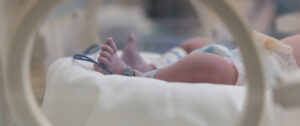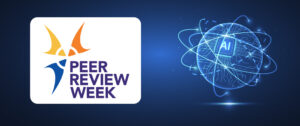Each year, ASHA selects a few planned posters at its annual Convention for the “Meritorious Poster Award,” recognizing research worthy of special consideration. These 59 posters present exceptional and innovative work on topics across the sciences from teams around the world.
It should come as no surprise that many of the researchers receiving this award have a history of publishing with the ASHA Journals. Check out highlights from some of these authors below before exploring their meritorious posters at this year’s ASHA Convention!
Toddlers and School-Age Children
Measurement Properties of Mean Length of Utterance in School-Age Children: Although mean length of utterance (MLU) is one of the most widely reported measures of syntactic development in developmental literature, its responsiveness in young school-age children’s language has been questioned. This article investigates whether or not MLU is a responsive and valid measure of children’s syntactic development.
Meritorious Poster Recipients: Jill R. Potratz and Melissa A. Redford
Interactive Effects of Temperament and Family-Related Environmental Confusion on Spoken Language in Children Who Are Deaf and Hard of Hearing: An abundance of noise in the family environment—even if that noise isn’t spoken language—can negatively impact spoken language outcomes in children who are deaf and hard of hearing. Researchers found that efforts to minimize chaos and auditory noise in the home can help children utilize their self-regulatory skills to achieve optimal spoken language outcomes.
Meritorious Poster Recipient: Rachael Frush Holt
Vocabulary Acquisition and Usage for Late Talkers: The Feasibility of a Caregiver-Implemented Telehealth Model: Many factors go into determining the feasibility of delivering interventions models via telehealth. In this article, the authors studied whether the online application of a vocabular acquisition model developed for late talkers was feasible—but also whether it would benefit toddlers and whether it was both socially and ecologically valid.
Meritorious Poster Recipients: Sarah Lynn Neiling and Mary Alt
Aphasia, Tongue Strength, and Speech Sound Disorders in Adults
Use and Perceived Effectiveness of Communication Modes Reported by Persons With Primary Progressive Aphasia: People with mild-to-moderate language impairment due to primary progressive aphasia use a variety of communication modes, including talking, to various degrees and with mixed effectiveness. Learn about high-, low-, and no-tech solutions that these individuals use—and how they report on the effectiveness of such solutions.
Meritorious Poster Recipient: Elizabeth Salley
Examining the Prevalence of Intervention Approaches Internationally: The Use of Nonspeech Oral Motor Exercises in Guatemala: In high-income countries, speech-language pathologists typically use nonspeech oral motor exercises to treat speech sound disorders. In this article, researchers interviewed practitioners in Guatemala to find out more about the use of these practices in low- and middle-income countries.
Meritorious Poster Recipients: Miriam Baigorri and Catherine J. Crowley
Flexibility for Intensity Dosing in Lingual Resistance Exercises: A Large Randomized Clinical Trial in Typically Aging Adults as Proof of Principle: Tongue strength exercises are an important aspect of dysphagia treatment, given the tongue’s role in the swallow process. This large study of typically aging adults examined tongue strength gains after a variety of tongue strengthening protocols.
Meritorious Poster Recipients: Kelsey L. Murray and Erin Kamarunas
More Quality Research in ASHA’s Journals
Whether or not you’re attending Convention, we hope that these articles inform and inspire you in your work or education. These articles represent just a small sample of the nationally recognized research published in ASHA’s five journals every year. Having published more than 700 articles already in 2023, the ASHA Journals Program offers a reliable, evidence-based place to find high-quality research. Be sure to check ASHAWire often to keep up on the latest research across the speech, language, and hearing sciences.







